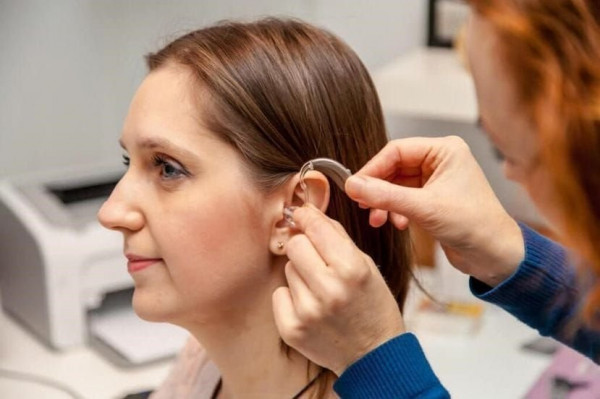The Importance Of Choosing The Right Hearing Aid For Your Unique Needs

Hearing loss is a common condition that affects millions of people around the world. It can have significant impact on a person's quality of life, making it difficult to communicate with others, participate in social activities, and even perform daily tasks. Fortunately, hearing aids offer a solution for many individuals who suffer from hearing loss. With so many different types of hearing aids online, it can be overwhelming to choose the right one for your specific needs. In this article, we will explore importance of choosing the right hearing aid for your unique needs and the factors you should consider when making your selection.
The Importance Of Choosing The Right Hearing Aid
Choosing the right hearing aid is crucial for a person's overall quality of life. A hearing aid that does not suit a person's specific needs may not be as effective in improving their hearing ability or addressing their unique challenges. It's essential to consider several factors when selecting a hearing aid, including the degree and type of hearing loss, lifestyle needs, and personal preferences.
Degree And Type Of Hearing Loss
The degree and type of hearing loss a person has are critical factors to consider when choosing a hearing aid. The degree of hearing loss refers to the severity of the hearing loss, which is typically categorized as mild, moderate, severe, or profound. A person with mild hearing loss may only have difficulty hearing in noisy environments, while someone with profound hearing loss may struggle to hear even with a hearing aid.
The type of hearing loss is also essential to consider when choosing a hearing aid. As mentioned earlier, there are two main types of hearing loss: sensorineural and conductive. Different types of hearing aids are designed to address different types of hearing loss. For example, someone with conductive hearing loss may benefit from a hearing aid that amplifies sound, while someone with sensorineural hearing loss may benefit from a hearing aid that stimulates the auditory nerve.
Lifestyle Needs
A person's lifestyle needs should also be considered when selecting a hearing aid. For example, someone who works in a noisy environment may require a hearing aid with noise-canceling capabilities to improve their ability to hear in that environment. Similarly, someone who enjoys outdoor activities may benefit from a hearing aid with a waterproof or water-resistant design.
Personal Preferences
Finally, personal preferences should be taken into account when choosing a hearing aid. Hearing aids come in variety of styles, including behind-the-ear, in-the-ear, and completely-in-canal. Some people may prefer a discreet hearing aid that is not visible to others, while others may prefer a more visible option that can be customized with different colors or patterns.
Factors To Consider When Choosing Hearing Aid
Now that we have discussed the importance of choosing the right hearing aid let's dive into some specific factors to consider when making your selection:
- Comfort: A hearing aid that is comfortable to wear is essential. It's important to choose a hearing aid that fits well and does not cause discomfort or irritation. A hearing aid that does not fit properly can also lead to feedback or whistling sounds, which can be distracting and frustrating.
- Sound Quality: The sound quality of a hearing aid is another important factor to consider. A hearing aid that provides clear and natural sound can significantly improve a person's ability to hear and communicate. Some hearing aids also offer advanced features such as noise reduction or directional microphones, which can further improve sound quality in specific environments.
- Battery Life: The battery life of a hearing aid can vary depending on the type of hearing aid and usage. It's important to choose a hearing aid with a battery life that meets your needs and lifestyle. Some hearing aids also offer rechargeable batteries, which can be a convenient and eco-friendly option.
- Connectivity: Many modern hearing aids offer connectivity features such as Bluetooth, which allows the user to connect to their smartphone or other devices. This can be a useful feature for streaming music, phone calls, or other audio directly to the hearing aid.
- Cost: Hearing aids can vary in cost, with some models costing thousands of dollars. It's important to consider the budget when selecting a hearing aid, but it's also essential to keep in mind that a more expensive hearing aid may offer advanced features or better quality sound.
